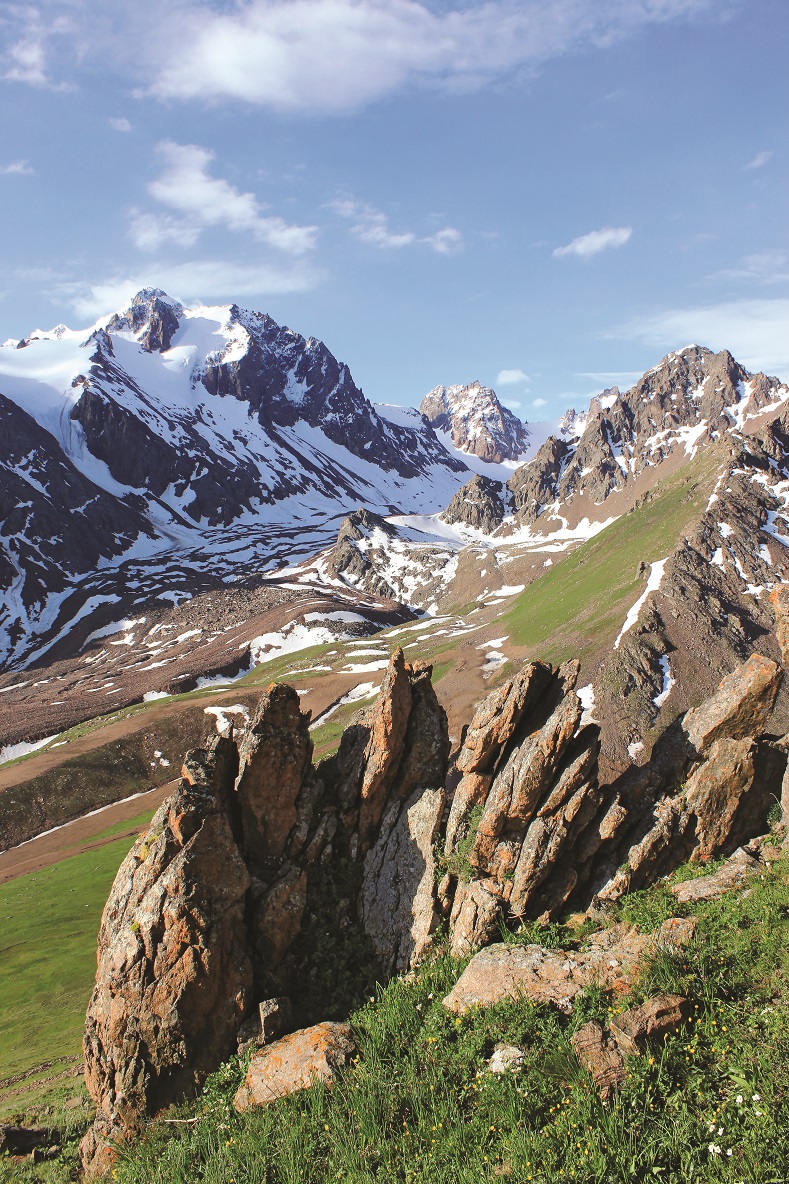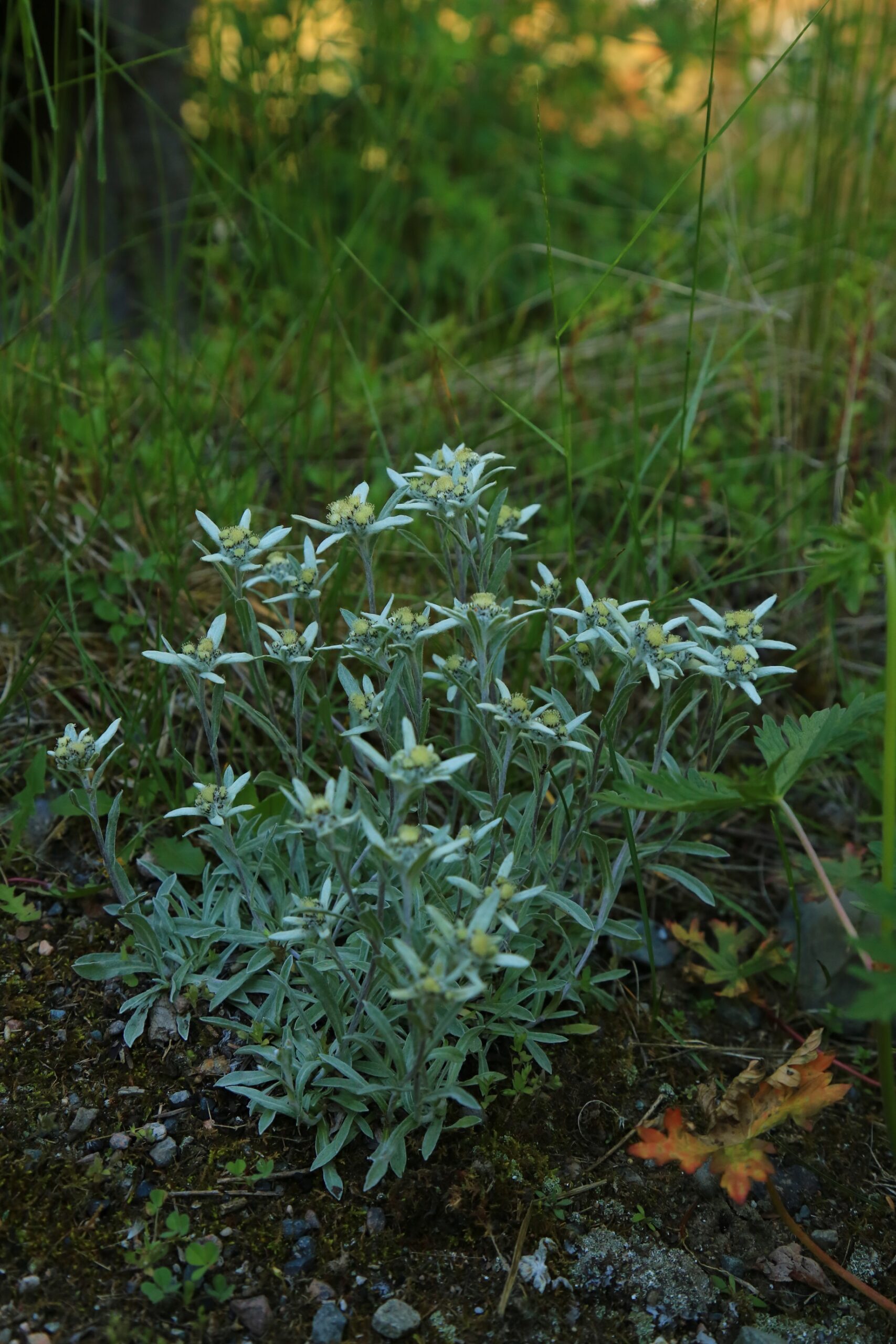Article by Ecological Society “Green Salvation,” Central Asia Board Grantee Partner

Ile-Alatau National Park is one of fifteen national parks in Kazakhstan. It is located near the city of Almaty, on the slopes of Zailiski Alatau, a mountain range in the Northern Tien Shan mountain system.

This pristine mountain sanctuary stands as a critical safeguard against climate change and biodiversity loss, both in the region and globally, yet this vital ecosystem is threatened by unchecked development and government indifference. As Global Greengrants Fund grantee partners, we at Green Salvation are battling to protect this essential ecosystem. We are part of a groundswell of global grassroots movements Global Greengrants supports that are building a future where nature and humanity coexist in harmony. Organizations like Green Salvation are establishing a new standard for improving access to justice and combating corruption.
Zailiski Alatau is the “green heart” of the Almaty region, which is home to more than two and a half million people. The mountains provide the region with high-quality drinking water, and its forests enrich the air, protect slopes from rain and spring floods, slow down melting snow, prevent the formation of landslides and soil erosion, and mitigate the consequences of climate change. The mountains are also known for their biological diversity, and are home to the wild ancestors of tulips, apple trees, and apricots.

For thousands of years, the Zailiski Alatau has been home to nomads who have not disturbed the region’s ecological balance. Over the past half century, however, as industrial civilization has set in, chaotic construction of residential complexes, roads, pipelines, and power lines, and the illegal disposal of household and industrial waste has increased in the region. This increase in development has caused significant damage to the ecological systems of what would become the park. In 1996, in order to preserve and restore the unique ecological, historical, scientific, aesthetic, and recreational value of the Zailiski Alatau, the government passed a resolution to officially create Ile-Alatau National Park. Since 2002, the park has also since been included in a tentative list of sites for nomination to the UNESCO World Heritage list.

While the Park does help preserve the region’s ecosystems, unrestricted economic activity has continued in and around the park, leading to loss of biodiversity, pollution of the surface of glaciers, and increased climate change consequences. In recent years, for example, officials and businesses have made plans to build a ski resort in Turgen Canyon. In another area, Aksai Canyon, officials have built a mudflow protection dam, developing land that could otherwise be preserved. This economic activity grossly violates norms set by international bodies like the World Heritage Convention and the Convention on Biological Diversity, as well as commitments Kazakhstan has made through agreements like the Aarhus Convention. It also reduces the likelihood of the park joining the UNESCO World Heritage list.
To better protect the critical ecosystems of Ile-Alatau National Park, grassroots groups in the region, including Green Salvation, have battled the local authorities of Almaty in court to create a buffer zone around the park that would ensure its protection, as smog and other environmental impacts from economic activity around the park has endangered its ecosystems. Starting in 2016, Green Salvation filed claims against the Almaty government to compel them to follow international agreements and establish a buffer zone around Ile-Alatau Park, thereby limiting development activities around the park.
The initial 2016 lawsuit saw no success, so in 2021, Green Salvation filed another lawsuit with the Kazakhstan Supreme Court. Following two years of legal battles, this second lawsuit finally resulted in a victory in May 2023. Explaining the decision, a Supreme Court judge acknowledged that Ile-Alatau National Park is of international importance, and that the local government must take its protection seriously.
Throughout the lawsuits, Green Salvation have also participated in broad public campaigns, like the “Let’s Protect Kok-Zhailau!” campaign, which aimed to stop the construction of a ski resort in Ile-Alatau National Park, and which led to a ban on the resort’s construction in 2019. We have also monitored the environmental situation in the park for many years, identifying and reporting violations that cause harm to the park’s ecosystems. A grant from Global Greengrants Fund has supported these efforts to monitor and safeguard the park.

Now, Green Salvation has begun a long battle to ensure the Almaty government enforces the Supreme Court decision. Green Salvation has sought to work with the Specialized Interdistrict Administrative Court of Almaty, who the Supreme Court has entrusted to determine how to execute the decision. The Almaty court, however, has mainly ignored and refused Green Salvation’s appeals, thanks largely to corruption among the Almaty court and government.
Although the struggle to establish a protected barrier zone around the park continues, the successful court case in 2023 has set an important precedent for improving access to justice and combating corruption. This is likely to have long-term positive consequences for the park and the wider Central Asia region.
